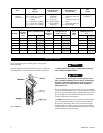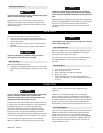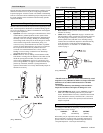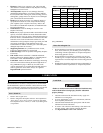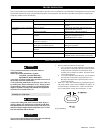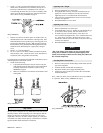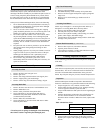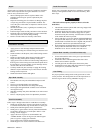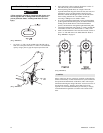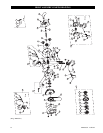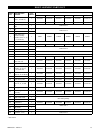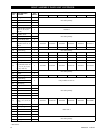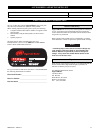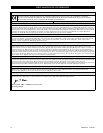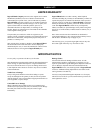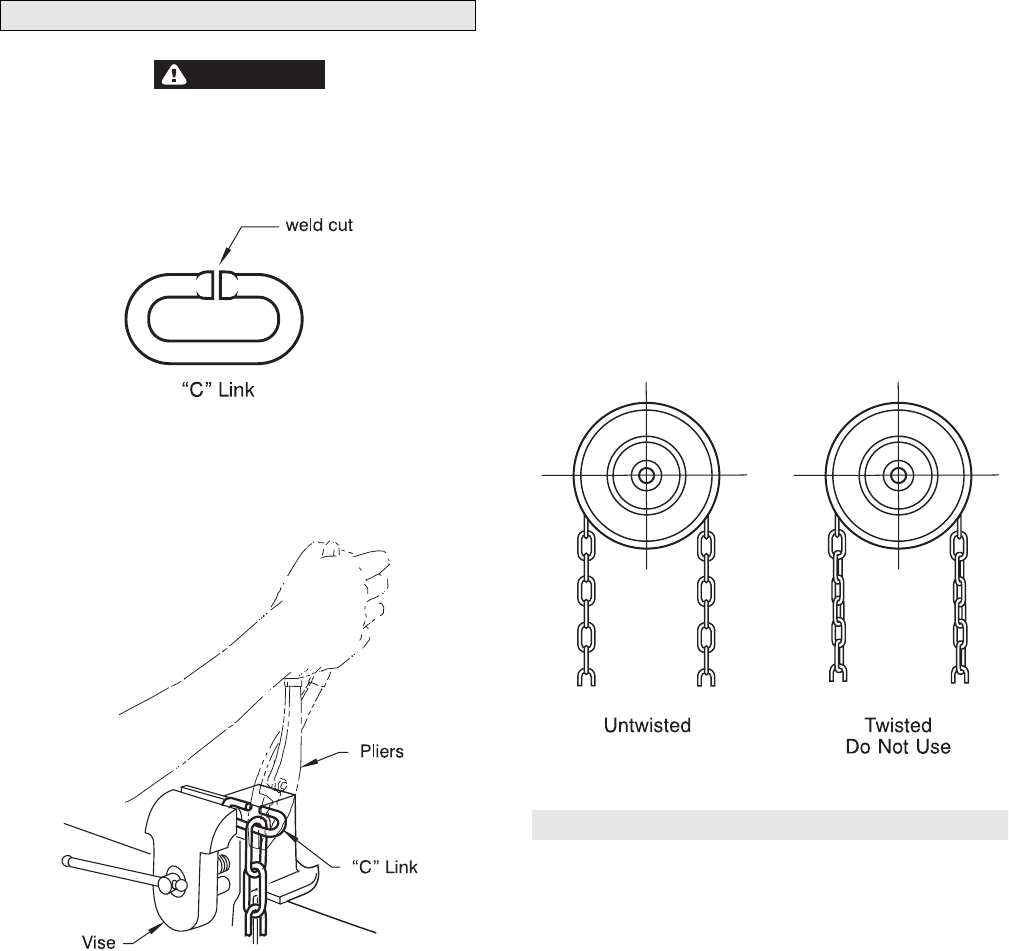
12 MHD56391 - Edition 2
Hand Chain Adjustment or Replacement
CAUTION
• When cutting the weld side of a hand chain link, do not cut or
nick the opposite side. A damaged link must be replaced to
prevent premature failure. A falling hand chain can cause
injury.
(Dwg. MHP0016)
1. To create a “C” link, cut the welded side of the link with a
hack saw. Clamp one side of the “C” link in a vise and bend it
open by using a pliers to grip the exposed part of the link.
(Dwg. MHP0014)
2. If the hand chain is being replaced, disconnect it at the “C”
link and carefully remove the hand chain.
3. When replacing a hand chain, cut a length 2 times the
required hand chain drop plus about one foot (305 mm). For
adjustments, remove or add a length of chain twice the
difference in hand chain height. To prevent the hand chain
from twisting, maintain an even number of links, by
removing or adding an even number of links.
4. If you are replacing the hand chain, run the new hand chain
up through the left hand chain guide, around the handwheel,
making sure the hand chain is seated in the handwheel
pockets, and back down through the right hand chain guide.
5. Connect the hand chain ends with the “C” link(s), making the
total number of links even, and bend the “C” link(s) shut.
6. Make sure the hand chain is not twisted. If twisted, untwist or
open a “C” link and remove one hand chain link. Refer to
Dwg. MHP0015
on page 12.
(Dwg. MHP0015)
Load Test
Prior to initial use, all new, extensively repaired, or altered hoists
shall be load tested by or under the direction of a person trained in
the operation and maintenance of this hoist, and a written report
furnished confirming the rating of the hoist. Test hoist to 125% of
the rated hoist capacity. Testing to more than 125% will be
required to set overload clutch and may be necessary to comply
with standards and regulations set forth in areas outside of the
USA.



